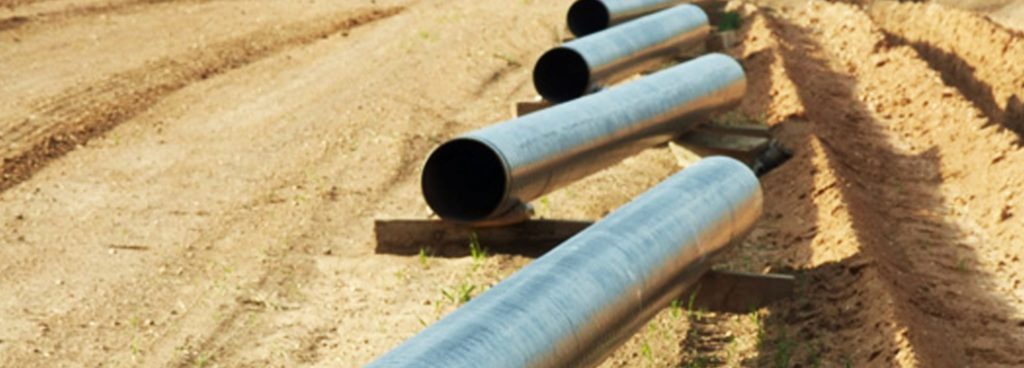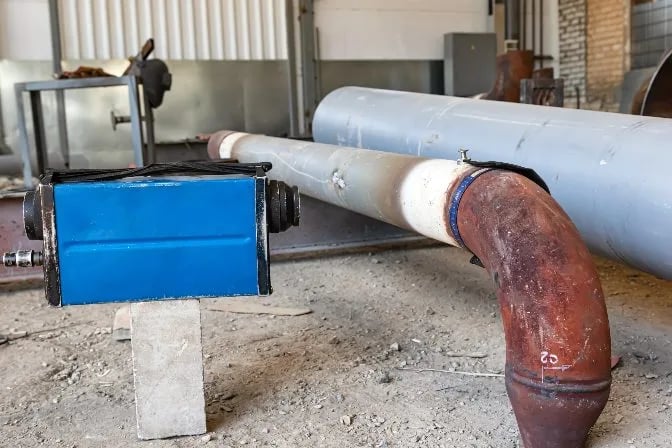Taking Full Advantage Of Efficiency: Pipe Welding Assessment Best Practices
In the world of pipe building and construction, the honesty and security of welded joints are vital. Ensuring that welding examinations are carried out effectively and effectively can dramatically influence the overall high quality of the job. By carrying out best techniques for pipe welding assessment, companies can simplify processes, decrease mistakes, and improve task timelines. From using cutting-edge technology to developing rigorous inspection procedures, there are countless techniques that can be utilized to make the most of efficiency in this important facet of pipe construction - Pipeline Welding Inspection. The precise interest to detail needed in welding assessment holds the essential to the lasting durability and reliability of the pipes, making it a subject of utmost relevance in the sector.

Importance of Reliable Welding Assessments
Reliable welding inspections play a crucial role in guaranteeing the architectural stability and safety and security of pipes. Appropriate examinations are necessary to recognize any type of issues, discontinuities, or blemishes in the bonded joints that can endanger the overall integrity of the pipeline system. By performing extensive assessments, assessors can identify problems early on, avoiding potential leaks, tears, or failures that could have significant ecological and security repercussions.
Prompt and exact welding evaluations also aid in keeping compliance with sector requirements and regulations. Abiding by these criteria is not only a legal demand yet likewise a required measure to ensure the integrity and long life of the pipes. Additionally, efficient assessments can contribute to cost savings by reducing the need for expensive repair work or replacements because of welding defects that could have been prevented or corrected throughout the inspection process.
Utilizing Technology for Examinations
To improve the effectiveness and precision of pipeline welding examinations, the integration of innovative modern technologies has actually come to be significantly essential in making sure extensive and accurate analyses of welded joints. One of the crucial technological developments in pipe welding examinations is the usage of automated ultrasonic screening (AUT) systems. By embracing these technological solutions, pipe welding evaluations can be conducted a lot more successfully, leading to higher top quality welds, boosted general safety, and decreased task timelines.
Developing Clear Examination Methods
Developing clear evaluation procedures is essential for making certain uniformity and reliability in the pipeline welding evaluation process. These procedures work as a set of standards that detail the specific steps, requirements, and approaches to be complied with throughout inspections. By plainly specifying the assessment procedures, all examiners associated with the process can comprehend their responsibilities and functions, resulting in a more standard and efficient examination workflow.

Routine testimonial and updates to the examination protocols are also crucial to adapt to altering market requirements and demands. By continually refining and improving the protocols based upon comments and lessons discovered, pipeline welding inspections can maintain the finest quality standards and regulative conformity.
Training and Certifications for Examiners
Educating and accreditations for inspectors are extremely important in making sure the competence and efficiency of individuals entrusted with overseeing pipe welding processes - Pipeline Welding Inspection. Properly trained examiners have the required expertise and skills to successfully evaluate weld quality, adherence to welding treatments, and compliance with sector criteria and regulations
Certifications, such as those provided by the American Welding Society (AWS) or the American Petroleum Institute (API), verify an inspector's expertise and ability to carry out evaluations to the greatest criteria. These accreditations often require strenuous training, examinations, and continuous expert development to ensure that assessors stay current with the most recent developments in welding technology and examination methods.
Along with formal accreditations, continual training programs play a vital function in boosting assessors' capacities. These programs cover a vast array of subjects, consisting of welding processes, flaw detection, security methods, and relevant codes and requirements (Pipeline Welding Inspection). By spending in thorough training and more helpful hints qualifications for assessors, companies can support the integrity of their pipeline welding jobs and alleviate the dangers associated with low quality welds
Continuous Enhancement in Inspection Procedures
Building upon the foundation of licensed and trained inspectors, constant improvement in examination procedures is crucial for ensuring the recurring quality and compliance of pipe welding operations. By carrying out a system of constant improvement, pipeline welding assessment processes can pop over here develop to fulfill the altering demands of the market, technological innovations, and regulative requirements. This entails frequently analyzing and assessing inspection treatments, techniques, and tools to recognize locations for enhancement.
One key facet of continuous enhancement in assessment procedures is feedback. Collecting input from assessors, welders, engineers, and other stakeholders enables a thorough assessment of present methods and the recognition of prospective locations for improvement. In addition, leveraging data and analytics can offer important insights into the performance of evaluation processes, making it possible for notified decision-making for optimization.
In addition, purchasing training and advancement programs for assessors can ensure that they are equipped with the current expertise and abilities to do their obligations successfully. Continual enhancement is a dynamic process that calls for dedication and dedication from all stakeholders to drive quality in pipe welding assessment techniques.
Verdict
In verdict, making best use of performance in pipe welding assessments is essential for making sure the top quality and security of framework tasks. By making use of modern technology, establishing clear protocols, offering correct training and qualifications for assessors, and these details continually enhancing assessment procedures, organizations can improve their operations and lessen threats. It is necessary for sectors to focus on efficient welding inspections to preserve high requirements and meet regulatory demands.
Effective inspections can contribute to cost savings by decreasing the need for costly fixings or replacements due to welding issues that might have been protected against or remedied during the inspection process.
Establishing clear evaluation methods is necessary for making certain consistency and reliability in the pipeline welding assessment procedure. By clearly specifying the assessment methods, all examiners entailed in the procedure can recognize their duties and duties, leading to an extra reliable and standard inspection process.
Clear examination procedures assist in lowering the likelihood of errors or oversights during the assessment process.Building upon the structure of licensed and experienced assessors, continuous improvement in evaluation processes is crucial for guaranteeing the continuous quality and compliance of pipeline welding operations.